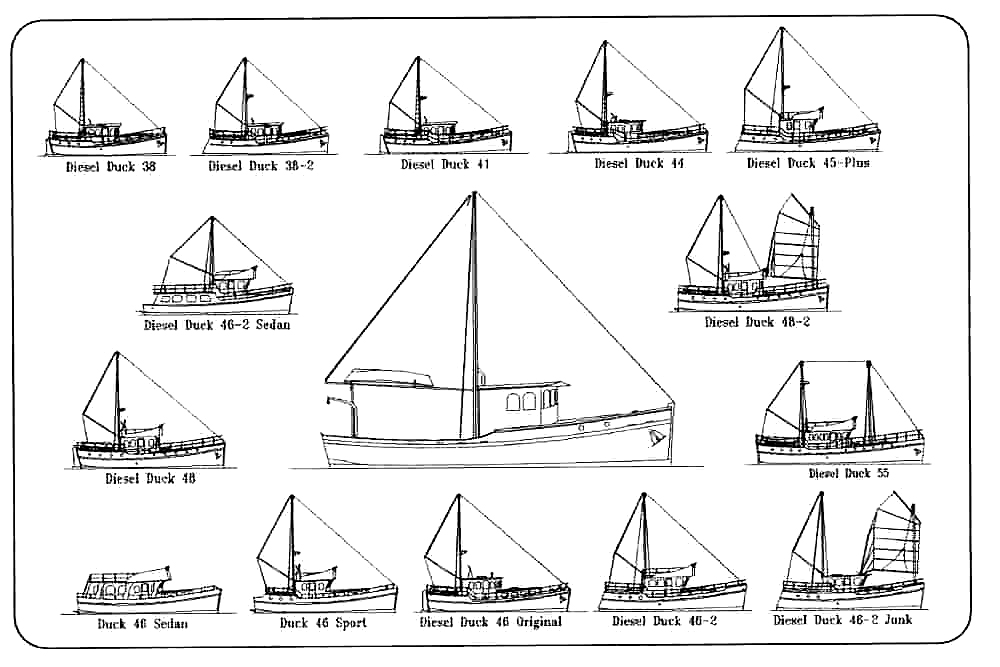 This stripped down version of the 48′ Diesel Duck surrounded by “the flock” shows her strong NW salmon troller roots. As recently as the 1970s she would have been a practical salmon troller. For that matter she would be today, but regulators have destroyed practically all forms of the family owned fish boat in America today.
This stripped down version of the 48′ Diesel Duck surrounded by “the flock” shows her strong NW salmon troller roots. As recently as the 1970s she would have been a practical salmon troller. For that matter she would be today, but regulators have destroyed practically all forms of the family owned fish boat in America today.
People talk about the family farm ‘ s demise, but that was from economic pressures, and economic pressures are not nearly the obstacle of a government decree, and while family farming is still seen and not even uncommon today, the days of the fleets of small fishing boats are simply gone. As are the vibrant economies of the coastal communities they supported. After all, just how many kite shops and Indian casinos can an area support?
It didn’t have to be that way either; Denmark, when faced with the same problem of diminishing resources, chose boat quotas as the solution, protecting their small fishermen, allowing the coastal communities and all the residual businesses associated with them they supported, to survive.
The fact is that soybeans are a far more practical source of protein than fish. In the mid-1990s, in one year, over 400 million tons of fish were thrown over the side as garbage. They were what is known in the industry as “residual catch,” which means they were the wrong species, or to large or to small or caught a few minutes after the 10 hour season closed. But the current fish boats are for the most part corporate owned, huge and expensive killing machines, and the people who make up the various commissions that make the rules are believe it or not usually corporate owners, and of course the politicians that write the laws listen to them.The concept of what is good for society is a bit suspicious; profit is a far less subtle thing to understand.
But here on the west coast there’s still a few little guys out there, beating their heads against it but thumbing their nose at it too, and I hope there always will be! Because when the last troller is towed off to the scrappers, a wonderful part of NW tradition will disappear with her. This was my particular heritage, and these line of designs (as well as the double-enders) thatI call “troller yachts” are my salute to it…..